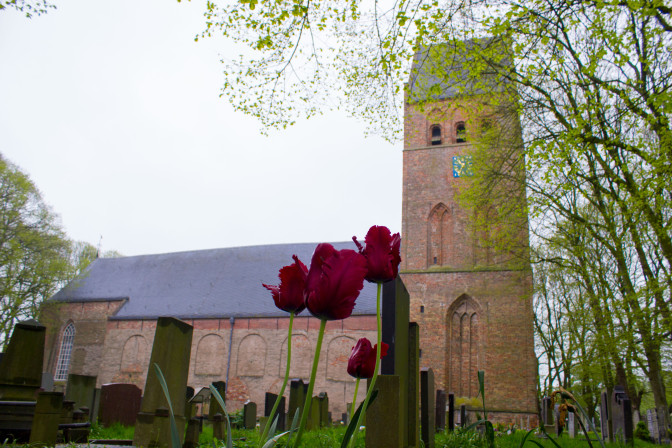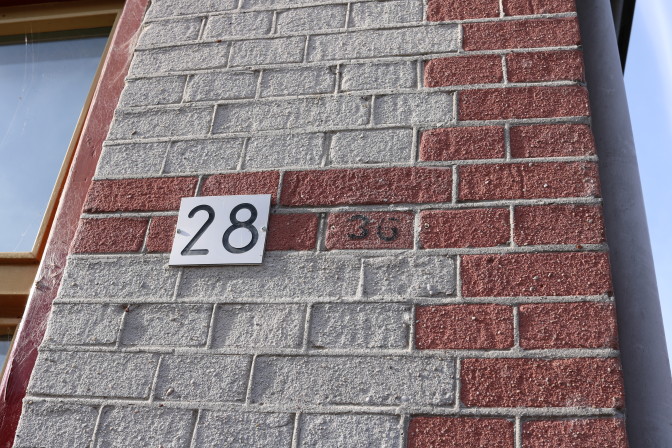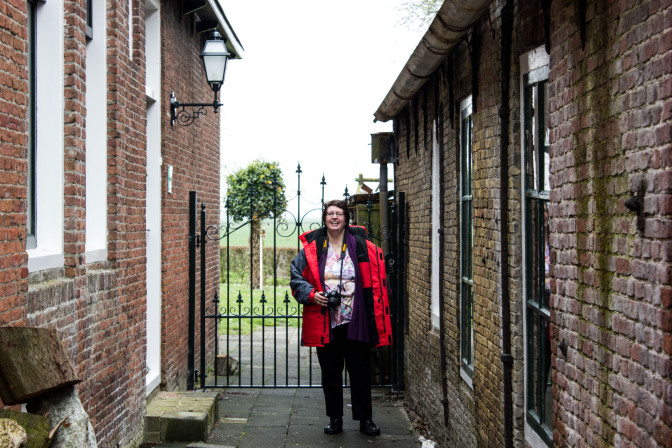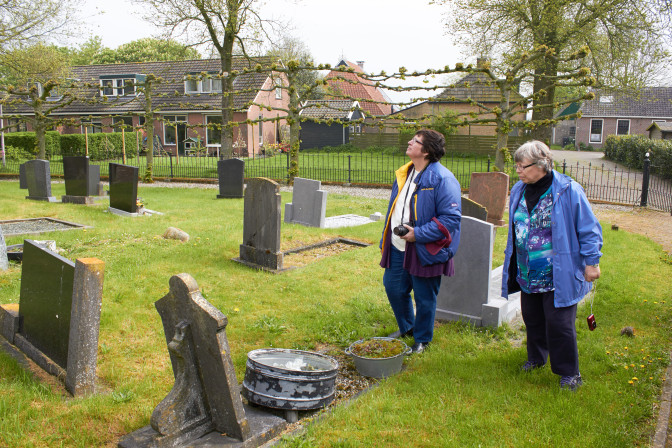Are you thinking about coming to the Netherlands to visit the bulb fields and visit the places where their ancestors lived? Depending on where your ancestors lived and how wealthy they were, it may not be easy to find out exactly where they lived.
Here are some things you need to know when trying to find the address where your ancestors lived.

Church in Stiens, Friesland. Photo by author.
1: Addresses changed over time
Addresses with a street name and house number are relatively modern. Some places, mainly large cities, had them by the early 1800s, but in other areas in the Netherlands, only used ward letters and house numbers until the late 1900s. Before that, most houses did not have a number at all, but were just described in terms of their neighbors or by the sign that they were hanging from their façade.
Read more about how addresses changed over time.
2: Cadastral numbers are not the same as ward numbers
In civil registration records, you may find an address like B 3, and you may find a cadastral map of section B that shows plot 3. These are two different numbering systems! In fact, the cadastral municipality may not even have the same borders as the civil municipality. When you find an address, you can’t look it up in the cadastral registration. These are separate systems. Often, there are no maps that show the location of wards and numbers you can find in the addresses.
3: Houses may have been renumbered
If you find an address in old records, and the address still exists, it does not mean that it was the same house or even the same location. Streets were sometimes renumbered, for example if buildings were torn down and new buildings added, which required additional numbers.

Changed house number in Ezinge, Groningen. Photo by author
4: Find out if your ancestors owned property
Most people, especially emigrants who often came from poor backgrounds, did not own property.
In the 1800s and 1900s, there are several records you can check to see if your ancestors owned property:
- Cadastral records. mostly not available online except for the 1832 registration which can be found at the Beeldbank Cultureel Erfgoed (Dutch only).
- Death duties files. These are available in the archives in the capital of the province. Some provinces have made them available online, so check the website of the archive of your ancestor’s province for “memories van successie”.
- Notarial records. These are mostly not available online and can typically be found in local or provincial archives.
- Newspapers. Sometimes you will find announcements of auctions in newspapers. A large selection of newspapers can be found online at Delpher (Dutch only).
- Tax records. These are usually available in local archives and rarely available online.
Before 1800, you can find out if your ancestor owned property by searching notarial records (where available), voluntary court records (in regions where there were no notaries) or in tax records. These records can typically be found in local archives and are rarely available online. Check the website of the local archive for these records.

Roberta Estes in the alley next to the house where her Ferwerda ancestors lived. Photo by author.
5: Trace property-owning neighbors
By researching your ancestors’ lives, you may discover who their neighbors were, for example in census records or population registers. You can then use the resources listed under point 5 to find out where these neighbors lived, to get an idea of the location where your ancestors lived.
6: Farm names rarely change
If your ancestors were farmers, you may find the name of the farm where they lived in population registers, letters or court records. Farm names often stayed the same a long time. The building may have been renewed, but the new building often retained the name.
Several towns have published books with “veldnamen” [field names], that show the location of each farm and field name. This can help you to find where the farm was located.
7: There are more places to visit than just the house
You don’t need to know the exact location of the house to visit places that were important in your ancestors’ lives. The churches where they worshiped are likely still there. If you are lucky, the old cemetery has not been cleared yet and you can find graves. Perhaps the town hall where they got married still exists, although it may have been turned into a restaurant. Wouldn’t that make a wonderful place to eat? A local museum may teach you about their lives.

Roberta Estes and Cheryl Ferverda visiting their family’s graves at the Baard cemetery in Friesland. Photo by author.
Need help?
Here are 11 things to know if you are planning a trip to the Netherlands.
If you need help finding the places where your ancestors lived, please contact me.

